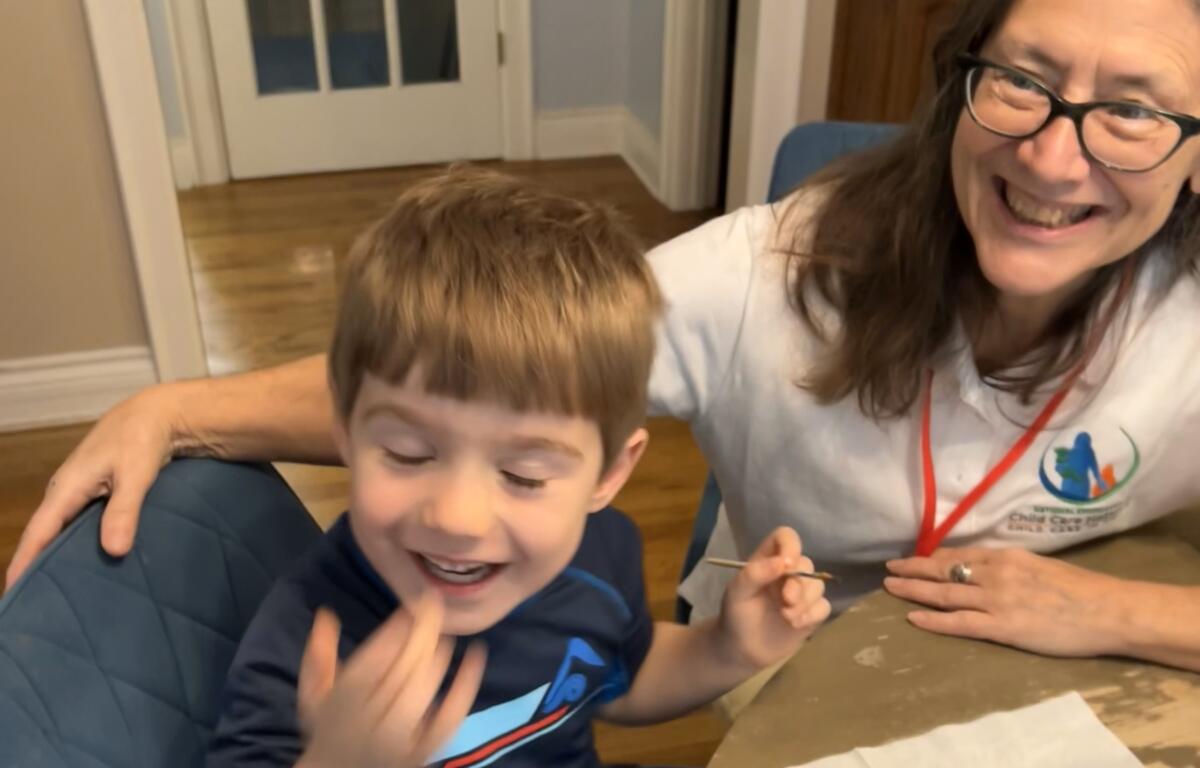ASHEVILLE, N.C. (828newsNOW) — In the aftermath of natural disasters and personal emergencies, one nonprofit is stepping up to support families in Western North Carolina with what they often need most: help with their kids.
The National Emergency Child Care Network, which provides free emergency childcare, has been active in areas affected by hurricanes, wildfires and other crises. Its model is simple — train local volunteers to provide trauma-informed care, then deploy them to families in need, often within hours of a request.
“We come to your door. We stay as long as you need us,” founder and CEO Silke Knebel said. “There’s no red tape, no application. Just a simple form and a phone call.”
The volunteers, many of whom are teachers, nurses and mental health professionals, care for children ranging from infants to age eight. They respond not just to natural disasters, but to everyday parenting emergencies — medical crises, mental health breakdowns or sheer exhaustion.
“We believe in providing space for parents to recharge and be stronger, healthier for their children,” Knebel said. “We literally show up at their front door for free child care, and we stay as long as they need us to. If they need just one day of child care, or if they need five days of child care, we always try to make it work.”

The group has about 30 volunteers in the Asheville area, with more in Raleigh, Durham and Cary. They coordinate closely with emergency management networks and are recognized members of North Carolina VOAD (Voluntary Organizations Active in Disaster).
During peak times, the group fields up to three “deployments” a week, sending teams of volunteers to homes for daylong child care shifts. One recent case involved a mother of three in Asheville, caring for a disabled husband and child with ADHD. Volunteers were at her door the morning after her request.
“She told me, ‘I slept for the first time in days,’” Knebel said. “That’s what this is about. Basic human needs.”
Knebel said there’s often a desperation they hear when they talk to the parents. And the volunteers understand.
“We’re going to help you. I don’t care about your income. I don’t care about your background. You don’t have to qualify. Yes is what we say. Yes, we’re going to help you,” Knebel said.
Although the organization is expanding efforts in Los Angeles because of recent wildfires, it continues to serve North Carolina communities.
Recent wildfires have triggered more requests for help.
“They really triggered this kind of post-traumatic stress disorder in a lot of the families,” Knebel said. “A lot of the children who had post-traumatic stress from the hurricane, it ignited that kind of fear, that kind of panic again.”
Parents have also been dealing with the stress.
“They’re not healing. They’re not getting the kind of mental health care that they really need,” she said.
In children, they’ve seen potty training regression, separation anxiety, outbursts and night terrors.
“It’s all stemmed from the trauma they experienced, all the scheduling changes, you know, the school shutting down, the stress of the parents. If the parents aren’t learning how to cope, then the children aren’t learning how to cope,” Knebel said.
“When parents are struggling, the kids feel it. We’re here to help them both heal.”.
Interest is growing — in families seeking help and professionals wanting to give back.
“There’s nothing else quite like this out there,” Knebel said. “We’re building a community where people show up for each other.”
The nonprofit is grassroots-focused.
“We train local volunteers to help the local families. We believe that’s the best model because the volunteers in our local communities have a really good understanding of that trauma. Most of them have experienced the disaster. So when they come out to help the families, they really have a sense of empathy,” Knebel said. “They’re not pretending. It’s heartwarming because some of them have suffered significantly from the disaster, but yet they want to go out and help others. And that’s just a beautiful story.”
For more information or to request services, families can visit the group’s website.

